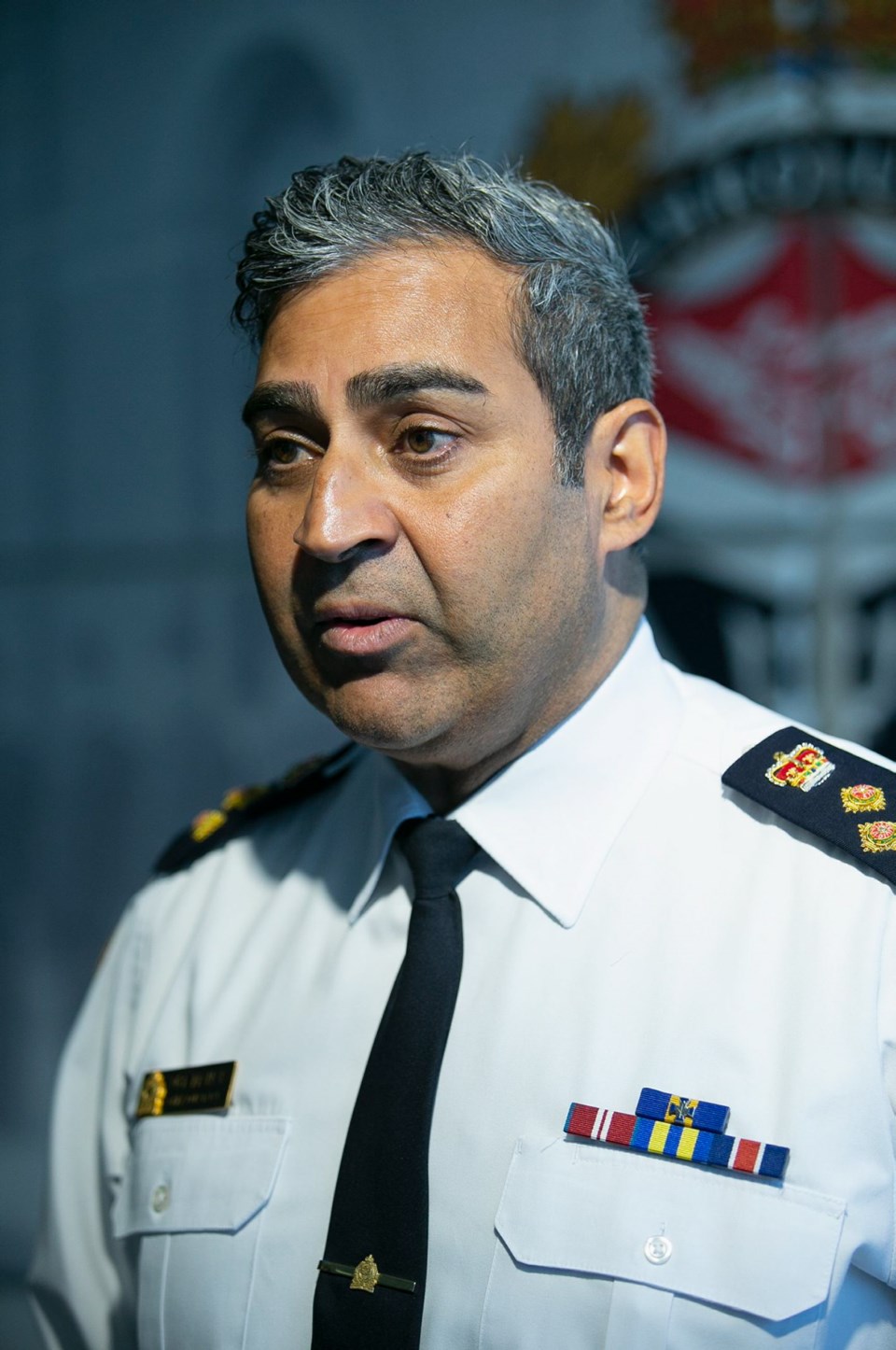The Victoria Police Department’s decision to disband a key crime-prevention unit points once again to the need for a regional police force, says the chief executive officer of the Greater Victoria Chamber of Commerce.
Catherine Holt said the fact Chief Del Manak scrapped the nine-member unit so that his department can better respond to 911 calls highlights a major problem with policing in the capital region.
“This is a perfect example of what we lose by duplicating police services over and over again for every municipality,” she said.
Manak has long argued that his department is strapped for resources, in part, because it’s policing the region’s core area — where people go to work and play each day — and getting no financial help from suburban municipalities, with the exception of Esquimalt.
Most metropolitan areas in Canada are policed by a single regional force. Greater Victoria, however, has four municipal departments and three RCMP detachments policing about 370,000 people.
Manak announced Wednesday that he was forced to disband the department’s crime-reduction unit due to budget constraints and an increase in the number of officers off work due to physical and psychological injuries.
Manak said his department was unable to properly respond to 911 calls and some of his officers are “breaking” under workload pressures.
Holt argued that a regional police force would have sufficient resources to handle emergency calls and still be able to staff specialized teams such as the crime reduction unit, which focused on preventing crime by targeting prolific offenders.
She said it’s “unnerving” to hear the police chief say he lacks the resources to even respond to 911 calls, let alone provide more specialized services. “That’s getting desperate,” she said.
Jeff Bray, executive director of the Downtown Victoria Business Association, expressed similar unease at the loss of the crime reduction unit.
“We know that when it comes to certain things — shoplifting, certain vandalism — sometimes it’s a small group of people that are committing multiple offences,” he said.
“So any proactive opportunity to deal with that is a good thing. The loss of that opportunity is concerning because we may see a rise in that type of activity and that impacts directly our bottom line.”
Bray stressed that Victoria’s downtown remains a safe place to live and work, but he said the association wants to see it stay that way. ”We’d like to see the police budget properly supported so they can do the work they do on behalf of not only our businesses, but the whole population.”
Victoria council approved a 3.2 per cent increase to a nearly $54-million budget in March, but rejected Manak’s request for more officers and insisted the department absorb the $690,000 cost of B.C.’s new employer health tax — something other city departments were not required to do.
The decision to disband the crime-reduction unit follows an earlier move to eliminate front-desk service hours on evenings and weekends.
Manak said more changes are coming and will be outlined in a “transformation” report slated for release next month.



